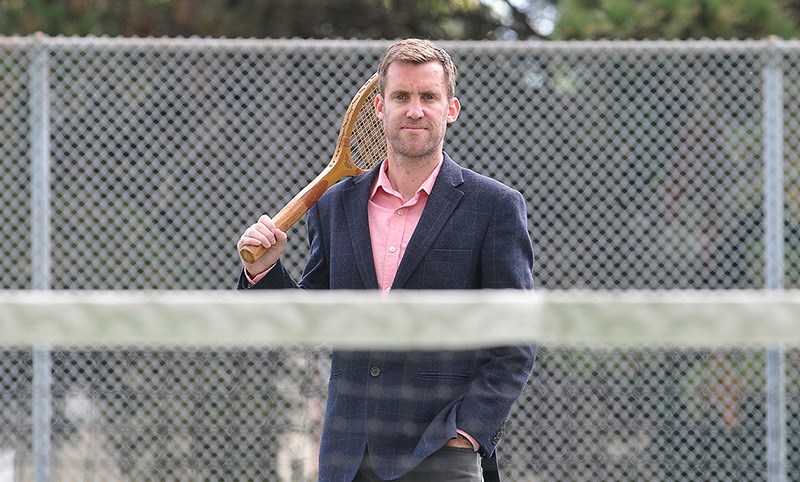Tennis has long been at the vanguard of social issues: from Billie Jean King’s battle for equal rights in the early 1970s, to transgender player Renée Richards fighting for entry into the U.S. Open and Arthur Ashe standing up against apartheid in South Africa, to Serena Williams’ accusations of gender bias at the U.S. Open recently.
But a leading Canadian tennis scholar who lives in Coquitlam says swaths of the sport are hobbled by an old-boys’ club and myth making that favours insiders with connections and perpetuates tired ideas. And that can make it difficult to cultivate new talent and inject energy to the game, said Rob Lake, an instructor in sports science at Douglas College.
A lifelong tennis fan, Lake’s academic interest took hold when he conducted a deep investigation into social exclusion in the sport for his PhD thesis at Brunel University in London, England.
Intrigued by the inability of British tennis to produce a steady flow of young up-and-comers into the tennis pipeline behind top players like Tim Henman and Andy Murray, Lake went undercover at a major British tennis club. With the club’s permission, he posed as an ambitious new member who tried to get onto organizing committees and win the favour of influential members. But, more often than not, he found himself excluded as an outsider.
“It’s a bit like going through high school,” Lake said. “You have to take the crap to become part of the inner circle.”
Lake said unwritten codes created pressure to conform to the established way of doing things, so even as newcomers worked their way up the club’s pecking order, they perpetuated its rigid social order. And for a young player hoping to access the best coaching and top facilities to progress, that can be discouraging.
“The sociology affects the psychology,” Lake said.
In fact, most of tennis’ advances in social issues have come because of individual champions for those issues, often pushing against entrenched administrators.
When Lake’s study was published, he said the main concern of the Lawn Tennis Association that governs the sport in Britain was the identity of the club he infiltrated rather than the issues his paper raised.
Lake said independent, critical analysis of the way tennis has evolved is growing in countries like England, but when he moved to Canada seven years ago he found himself “a very big fish in a small pond.”
Lake’s latest paper, published with fellow sports academic Simon Eaves of Manchester Metropolitan University, debunks the mythical origins of the Davis Cup international tournament.
For more than 100 years, Lake said, the founding of tennis’ biggest international event — its World Cup — has been credited to Dwight F. Davis, a wealthy American politician and tennis pioneer. But, in fact, all he did was donate the silver trophy that is the tournament’s ultimate prize. And he even did so anonymously, to avoid a conflict of interest as he was involved in the vote to approve the tournament.
When the tournament was sanctioned, Davis took credit and, because of his wealth and influence, no one disputed his claim, Lake said.
Lake said while the paper’s conclusion might be seen by some as little more than a historical curiosity, “the timing is really good to rewrite that history,” especially as tennis makes new headlines, perhaps inspiring a new generation of players to begin their ascent of its hierarchy.
“(Tennis) has a unique platform to advocate as a space for change,” Lake said. But it has to “be honest about its history.”
Lake and Eaves’ paper, Dwight Davis and the Foundation of the Davis Cup in Tennis: Just another Doubleday Myth?, is in the Spring 2018 issue of the Journal of Sport History.



